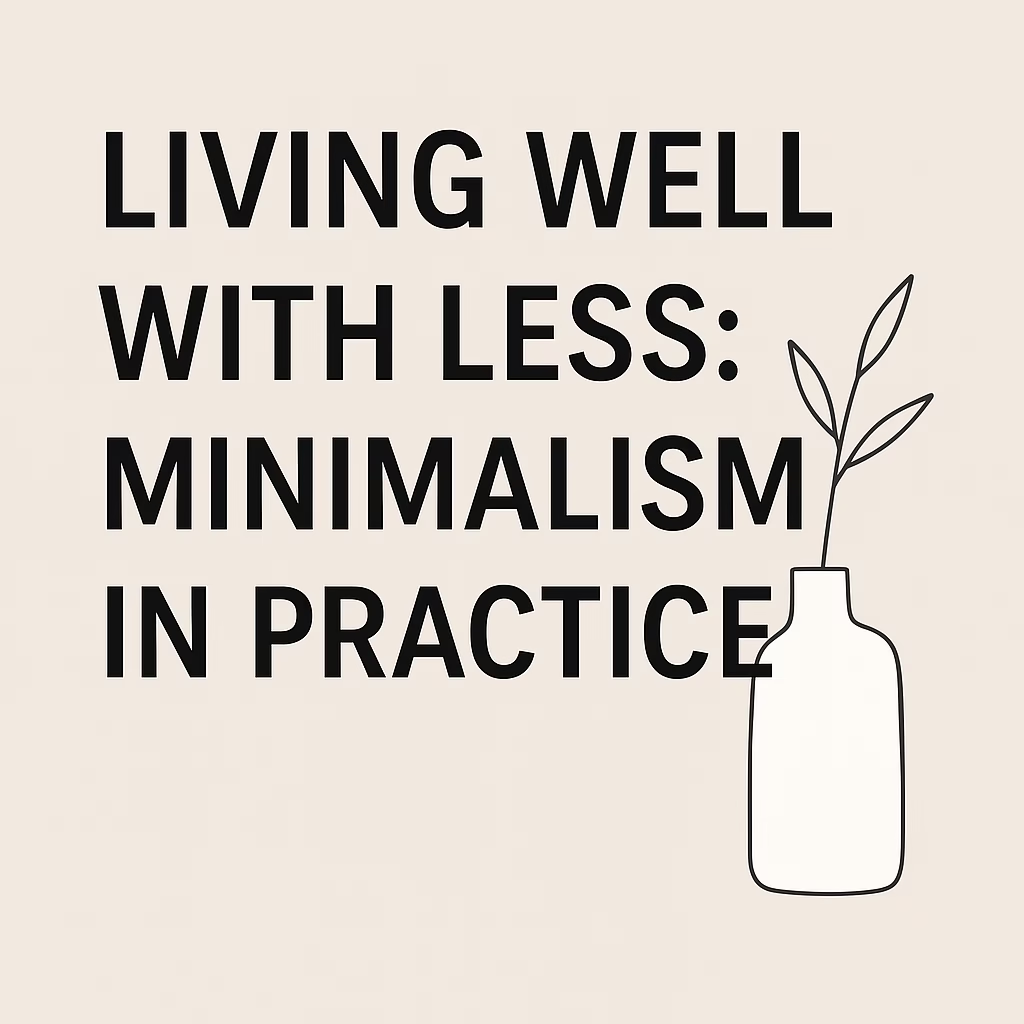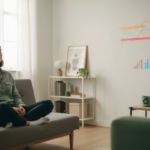In a world that constantly tells us to want more — more money, more success, more stuff — choosing to live with less is a quiet revolution. Minimalism is not about deprivation or strict rules; it’s about making room for what truly matters. It’s a mindset that helps you live intentionally, declutter your surroundings, and find freedom from the endless cycle of consumption.
Living well with less doesn’t mean sacrificing comfort or joy. In fact, it often leads to more peace, more time, and more satisfaction. Let’s explore how minimalism in practice can simplify your life while helping you live with greater purpose and ease.
What Is Minimalism, Really?
Minimalism is the conscious decision to remove the unnecessary so you can focus on what truly adds value to your life. It’s not only about having fewer possessions but also about filtering your commitments, habits, and even thoughts.
A minimalist lifestyle invites you to ask deeper questions:
-
Does this add meaning to my life?
-
Am I buying this because I need it or because I’m bored?
-
What could I gain if I owned less?
At its core, minimalism is the art of intentional living — making sure your actions and environment align with your values.
The Benefits of Living with Less
1. More Clarity and Mental Space
Clutter doesn’t only exist in your home; it also clouds your mind. When you declutter your space, you naturally declutter your thoughts.
A tidy environment supports focus, reduces anxiety, and increases creativity. It’s amazing how much mental energy you gain when you’re not surrounded by visual noise.
2. Financial Freedom
When you adopt minimalism, you stop spending on things that don’t align with your priorities. Instead of chasing the next purchase, you begin to value experiences and long-term goals.
You save more, spend intentionally, and finally feel in control of your finances. Minimalism makes money a tool for freedom, not for accumulation.
3. Time for What Truly Matters
Think about how much time is spent cleaning, maintaining, or organizing belongings.
Owning less means less stress, less maintenance, and more time for the people and activities that fulfill you.
Time, after all, is the most valuable resource we have — minimalism helps you protect it.
4. A Smaller Environmental Footprint
Choosing to live with less means consuming less. Every item you don’t buy reduces waste, energy use, and your carbon footprint.
Minimalism is an act of sustainability — a lifestyle that benefits not only you but the planet.
How to Practice Minimalism in Everyday Life
1. Start with Your Physical Space
Begin small. Pick one drawer, one shelf, or one room. Remove everything and ask yourself:
-
Do I use this often?
-
Does it make me happy or serve a real purpose?
If not, donate, recycle, or discard it. Minimalism doesn’t mean throwing everything away — it means keeping what’s useful and meaningful.
Once you experience the peace of a clean, open space, you’ll never want to go back.
2. Simplify Your Wardrobe
A minimalist wardrobe saves time and mental energy. Create a capsule wardrobe — a collection of versatile, timeless pieces that you actually love wearing.
When you dress with simplicity, you remove decision fatigue and gain confidence in your style.
Tip: Choose quality over quantity. Fewer, well-made items outlast fast fashion trends and contribute to sustainable living.
3. Be Intentional with Technology
Minimalism in the digital age also means managing your online world.
Unsubscribe from unnecessary emails, limit social media use, and remove apps that drain your attention.
Your phone should be a tool, not a distraction.
Try a weekly digital detox — one day where you disconnect to reconnect with yourself and the real world.
4. Spend Mindfully
Every purchase is a vote for the kind of life you want.
Before buying something new, pause and ask:
-
Do I really need this?
-
Is this replacing something that’s still functional?
-
Will this add lasting value to my life?
When you buy less, you buy better. Minimalism helps transform consumption into conscious decision-making.
5. Redefine Success
Society often equates success with status or possessions. But minimalism teaches that real success lies in living a life aligned with your values.
If your definition of success includes peace of mind, meaningful relationships, and purpose, you’re already living richly — even with less.
The Emotional Side of Minimalism
Minimalism is not just a physical or financial practice — it’s deeply emotional. Letting go of things can bring up memories, guilt, or fear.
But with time, you learn that memories live in your heart, not in objects.
Releasing the unnecessary creates space for growth and new experiences.
It’s okay to feel attached; it’s human. What matters is recognizing that holding on to too much can weigh you down. Minimalism invites you to lighten your load — physically and emotionally.
Minimalism and Relationships
When you embrace minimalism, your relationships also change. You start valuing connection over consumption.
Instead of meeting friends to shop or compare lifestyles, you might prefer shared meals, walks, or deep conversations.
Minimalism fosters authenticity and appreciation — it helps you see people for who they are, not what they have.
Minimalism as a Lifelong Practice
Minimalism isn’t a one-time project; it’s a mindset that evolves.
Some months you’ll feel deeply aligned, and others you’ll realize clutter has crept back in — and that’s okay. The beauty of minimalism lies in awareness and constant recalibration.
Living well with less is a journey, not a destination. Each step toward simplicity brings you closer to clarity, purpose, and inner peace.
Final Thoughts: Freedom in Simplicity
Minimalism isn’t about living with nothing; it’s about living with enough.
It’s a gentle reminder that joy doesn’t come from owning more but from needing less.
When you simplify your possessions, your routines, and your thoughts, you open space for what truly nourishes you.
Living well with less is an act of courage in a world obsessed with more. But the reward — freedom, peace, and purpose — is worth it.
Start today: declutter one corner, say no to one unnecessary purchase, and take a breath of gratitude for all that you already have.
Did you like it? Read more news like this.
Share it with your friends.






